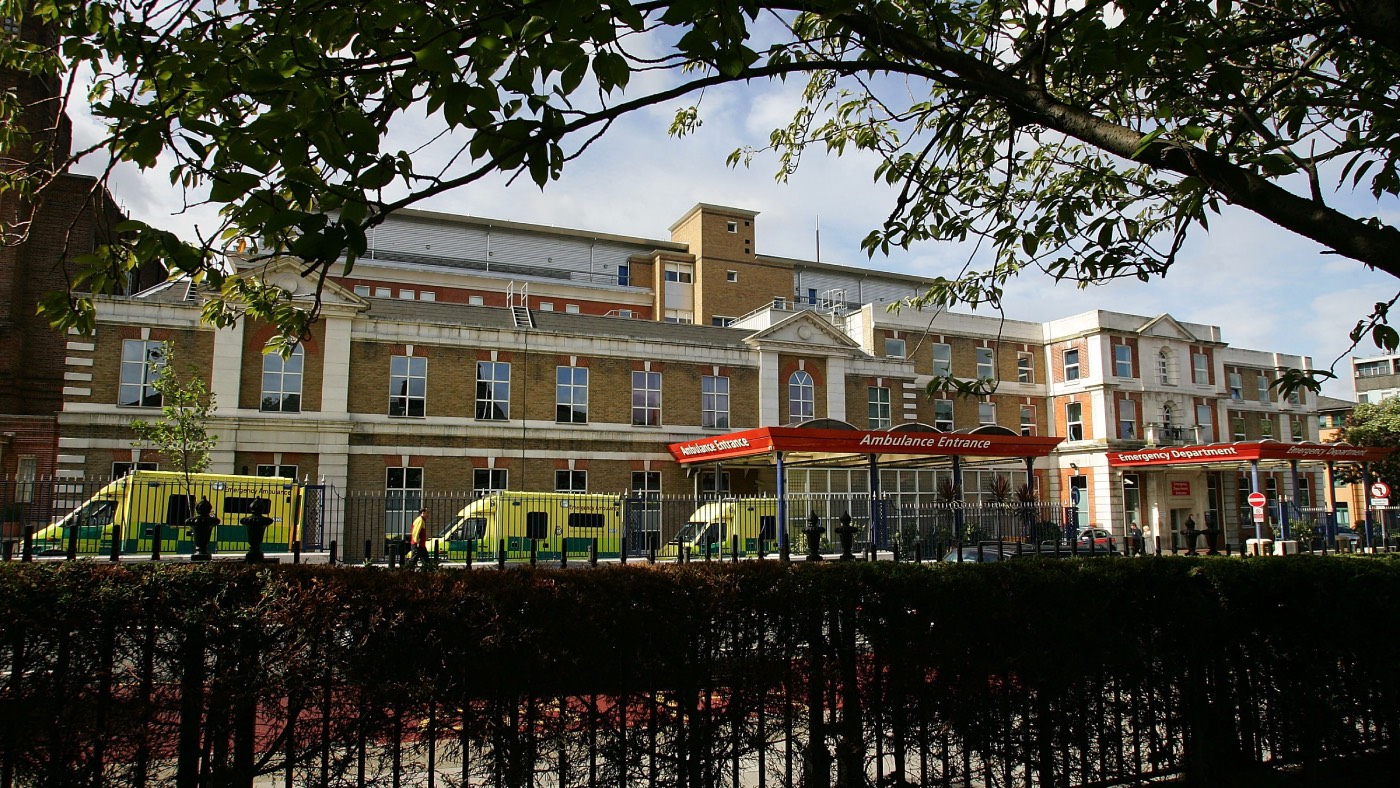Teenage boy believed to be youngest UK Covid-19 victim
13-year-old boy died alone after testing positive for coronavirus

A free daily email with the biggest news stories of the day – and the best features from TheWeek.com
You are now subscribed
Your newsletter sign-up was successful
A 13-year-old boy who tested positive for coronavirus has died, a London hospital trust has said.
Ismail Mohamed Abdulwahab, from Brixton in south London, died in King’s College Hospital early on Monday and is thought to be the youngest person to have died with the virus in the UK.
According to a GoFundMe page set up to raise funds for funeral costs, Abdulwahab died “without any family members close by due to the highly infectious nature of Covid-19”.
The Week
Escape your echo chamber. Get the facts behind the news, plus analysis from multiple perspectives.

Sign up for The Week's Free Newsletters
From our morning news briefing to a weekly Good News Newsletter, get the best of The Week delivered directly to your inbox.
From our morning news briefing to a weekly Good News Newsletter, get the best of The Week delivered directly to your inbox.
In a statement released by a friend, Abdulwahab’s family said he had no apparent underlying health conditions and had tested positive for Covid-19 on Friday. They said they were “beyond devastated” by his death.
–––––––––––––––––––––––––––––––For a round-up of the most important stories from around the world - and a concise, refreshing and balanced take on the week’s news agenda - try The Week magazine. Start your trial subscription today –––––––––––––––––––––––––––––––
A spokesman for King’s College hospital NHS foundation trust said: “Our thoughts and condolences are with the family at this time. The death has been referred to the coroner and no further comment will be made.”
Doctors have warned that while older people with health issues are at particular risk from the virus, young people can also be badly affected.
A free daily email with the biggest news stories of the day – and the best features from TheWeek.com
Earlier this week, Luca Di Nicola, a 19-year-old assistant chef, also died after testing positive for coronavirus. Sky News reports that it is understoof he was also a “very healthy” teenager, with no underlying health issues.
Nathalie MacDermott, a clinical lecturer at King’s College Hospital, told the Daily Mail: “While we know it is much less likely for children to suffer severe COVID-19 infection than older adults, this case highlights the importance of us all taking the precautions we can to reduce the spread of infection in the UK and worldwide.”
Vanessa Sancho-Shimizu, a research fellow in infectious diseases and virology at Imperial College London, echoed this, saying the deaths showed that “however exceedingly rare this may be, statistics means nothing when it affects those close to you, and that there is no room for complacency in this pandemic”.
BBC health correspondent, Nick Triggle, writes that it remains rare for teenagers to become seriously ill after catching the virus.
“Just 0.3% of those who show symptoms require hospital care and 0.006% die - in other words, two out of every 30,000 infections among this age group will not survive,” Triggle said.
-
 What to know before filing your own taxes for the first time
What to know before filing your own taxes for the first timethe explainer Tackle this financial milestone with confidence
-
 The biggest box office flops of the 21st century
The biggest box office flops of the 21st centuryin depth Unnecessary remakes and turgid, expensive CGI-fests highlight this list of these most notorious box-office losers
-
 What are the best investments for beginners?
What are the best investments for beginners?The Explainer Stocks and ETFs and bonds, oh my
-
 A Nipah virus outbreak in India has brought back Covid-era surveillance
A Nipah virus outbreak in India has brought back Covid-era surveillanceUnder the radar The disease can spread through animals and humans
-
 A real head scratcher: how scabies returned to the UK
A real head scratcher: how scabies returned to the UKThe Explainer The ‘Victorian-era’ condition is on the rise in the UK, and experts aren’t sure why
-
 How dangerous is the ‘K’ strain super-flu?
How dangerous is the ‘K’ strain super-flu?The Explainer Surge in cases of new variant H3N2 flu in UK and around the world
-
 Covid-19 mRNA vaccines could help fight cancer
Covid-19 mRNA vaccines could help fight cancerUnder the radar They boost the immune system
-
 The ‘menopause gold rush’
The ‘menopause gold rush’Under the Radar Women vulnerable to misinformation and marketing of ‘unregulated’ products
-
 The new Stratus Covid strain – and why it’s on the rise
The new Stratus Covid strain – and why it’s on the riseThe Explainer ‘No evidence’ new variant is more dangerous or that vaccines won’t work against it, say UK health experts
-
 RFK Jr. vaccine panel advises restricting MMRV shot
RFK Jr. vaccine panel advises restricting MMRV shotSpeed Read The committee voted to restrict access to a childhood vaccine against chickenpox
-
 RFK Jr. scraps Covid shots for pregnant women, kids
RFK Jr. scraps Covid shots for pregnant women, kidsSpeed Read The Health Secretary announced a policy change without informing CDC officials